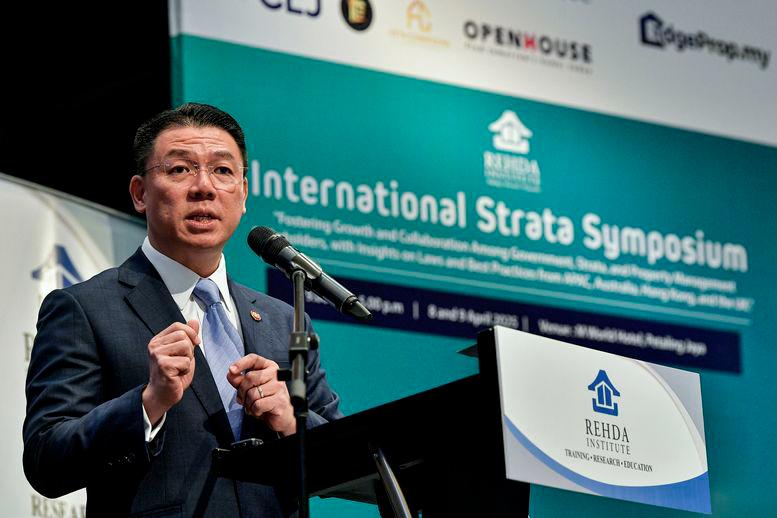PETALING JAYA: There is a significant gap between the number of licensed property firms and the current strata schemes in the country, said Housing and Local Government Minister Nga Kor Ming.
He said the issue created a ripple effect, evident in the way strata schemes were managed across the nation.
“At present, there are only 594 licensed property management firms overseeing 26,334 strata schemes or 2.91 million strata units in Malaysia.
“In other words, each firm is responsible for managing 44 schemes or nearly 5,000 units,“ he said in his keynote address at the International Strata Symposium at the M World Hotel yesterday.
“It points to a major problem – there aren’t enough licensed firms to adequately manage all the strata schemes, which leads to poor service quality for the Joint Management Body management committees,“ he added.
Nga highlighted that the shortage of licensed professionals had resulted in a rise in unlicensed property managers.
“As a result, many property owners and tenants, particularly in strata schemes, are facing challenges.
“Property values have dropped due to the poor management by unqualified, poorly trained and dishonest managers.“
Nga said his ministry is in discussions with stakeholders to create a new bill that would regulate property and building management more effectively.
“Currently, property managers fall under the Valuers, Appraisers, Estate Agents and Property Managers Act 1981 (Act 242).
“By introducing a new law specifically for property managers, we aim to improve the quality of property management services in Malaysia, ensuring that maintenance fees are spent properly – on things such as lift maintenance, facility upgrades, waste collection and sewage repairs.”
He also addressed the need for urban redevelopment, stressing the importance of rejuvenating deteriorating or underused properties in cities.
“With land becoming scarcer, urban redevelopment is essential. We must avoid the situation in which one part of the city thrives, while the other remains in decline.”
Nga said the ministry aims to table the Urban Renewal Act in June, which will focus on four key areas – urban redevelopment, regeneration, revitalisation and conservation.
“Our priority is a structured, inclusive approach to development, guided by our ‘leave-no-one-behind’ principle.”
He pointed out that redevelopment projects benefit homeowners, as they often receive larger, more valuable units than the ones they initially purchased.
“We want to replicate this success with the Urban Renewal Act. In Kuala Lumpur alone, we’ve identified 139 urban renewal sites, with an estimated gross development value of RM355.3 billion.”
The Urban Renewal Act aims to streamline the redevelopment process, protect property owners’ rights and boost the local economy.









